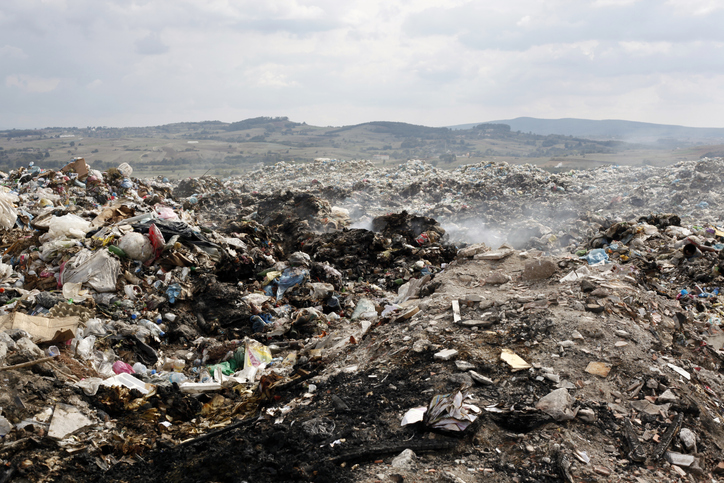Hydrogen sulfide and your health

The risk to your health from breathing in any chemical depends on how much is in the air and how long and how often you breathe it in. Not all people have the same risk. Age, gender, genetics, lifestyle, and other factors play a role in how exposure to chemicals affects health. Breathing very high levels of hydrogen sulfide for hours or days can cause different health impacts than breathing high levels of hydrogen sulfide for years. While you can’t control all the sources of hydrogen sulfide in the environment, taking action to reduce your exposure can lower your risk of health effects now and in the future.
What is hydrogen sulfide and where does it come from?
Hydrogen sulfide, which smells like rotten eggs, can be detected in the air at low levels that typically don’t cause health impacts. Hydrogen sulfide occurs naturally in sewers, hot springs, and during volcanic activity. Industries that make things like oil, natural gas, animal products, and asphalt also release hydrogen sulfide. Everyone is exposed to a small amount of hydrogen sulfide every day. Low levels of hydrogen sulfide are in the outdoor environment, in cars and buses, in the workplace, and in the home.
Hydrogen sulfide and your health
- Breathing low levels of hydrogen sulfide for a short time usually does not cause immediate or serious health impacts. Some people may experience eye, nose, and throat irritation.
- Breathing very high levels of hydrogen sulfide for a short amount of time can cause loss of smell. Most people can recover their sense of smell once they are away from the chemical, but some individuals may experience longer-lasting effects.
- Breathing very high levels of hydrogen sulfide can cause nausea, vomiting, shortness of breath, loss of sleep, respiratory tract irritation, and loss of consciousness.
- At extreme levels, hydrogen sulfide can cause death.
- People with asthma, young children, older adults, and people who are sensitive to chemicals may be more likely to have health impacts from hydrogen sulfide.
If you have serious symptoms or symptoms that don’t go away, contact a health care provider.
If you don’t have insurance or a healthcare provider, we encourage you to apply for Health First Colorado (Colorado’s Medicaid Program) or the Child Health Plan Plus (CHP+). Visit Health First Colorado.
Reducing exposure to hydrogen sulfide reduces the risk of health problems
There are rules and regulations to help protect the environment and health, but you can also take steps to further minimize exposure. If you are concerned about hydrogen sulfide, consider these steps to reduce your exposure:
- Keep doors and windows closed when outdoor odors are noticeable.
- Air cleaners can improve indoor air quality. Hydrogen sulfide can be removed by air cleaners that contain activated carbon filters.
- Sewer gas is a mix of many different chemicals, which may include hydrogen sulfide. If you believe there is a lot of sewer gas in a closed area, leave the building right away and call the fire department.
Learn more about hydrogen sulfide
- In January 2025, the Colorado Air Quality Control Commission selected hydrogen sulfide as one of five priority air toxics. The new rule aligns with requirements in Colorado’s Public Protections From Toxic Air Contaminants Act. Next, the CDPHE Air Pollution Control Division will propose health-based standards and emission control strategy regulations for the five air toxics.
- To stay involved: Visit the division’s public participation opportunities web page and sign up for email updates on air toxics.
- The Agency for Toxic Substances and Disease Registry provides additional information about hydrogen sulfide and health.
Contact
For information about hydrogen sulfide and your health, contact ToxCall at 303-692-2606 or cdphe_toxcall@state.co.us.